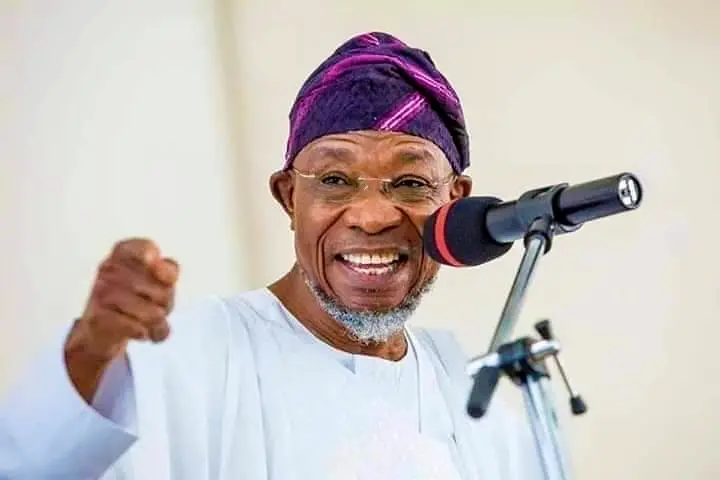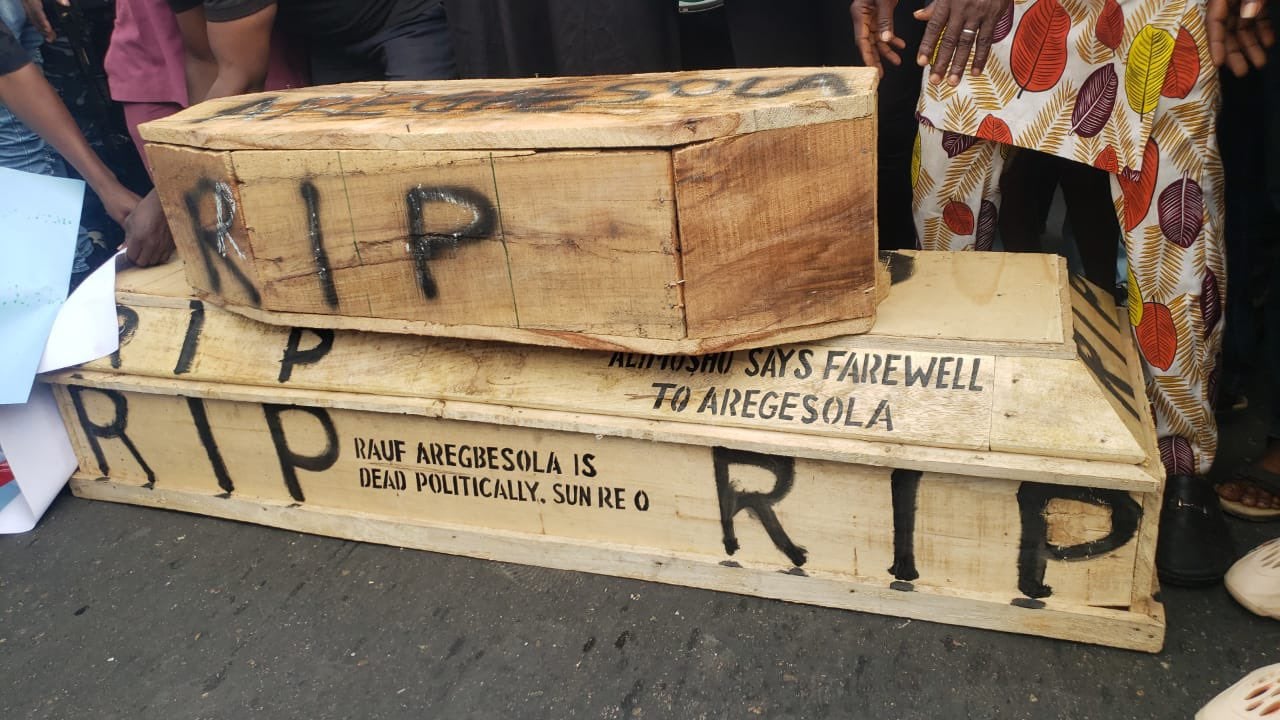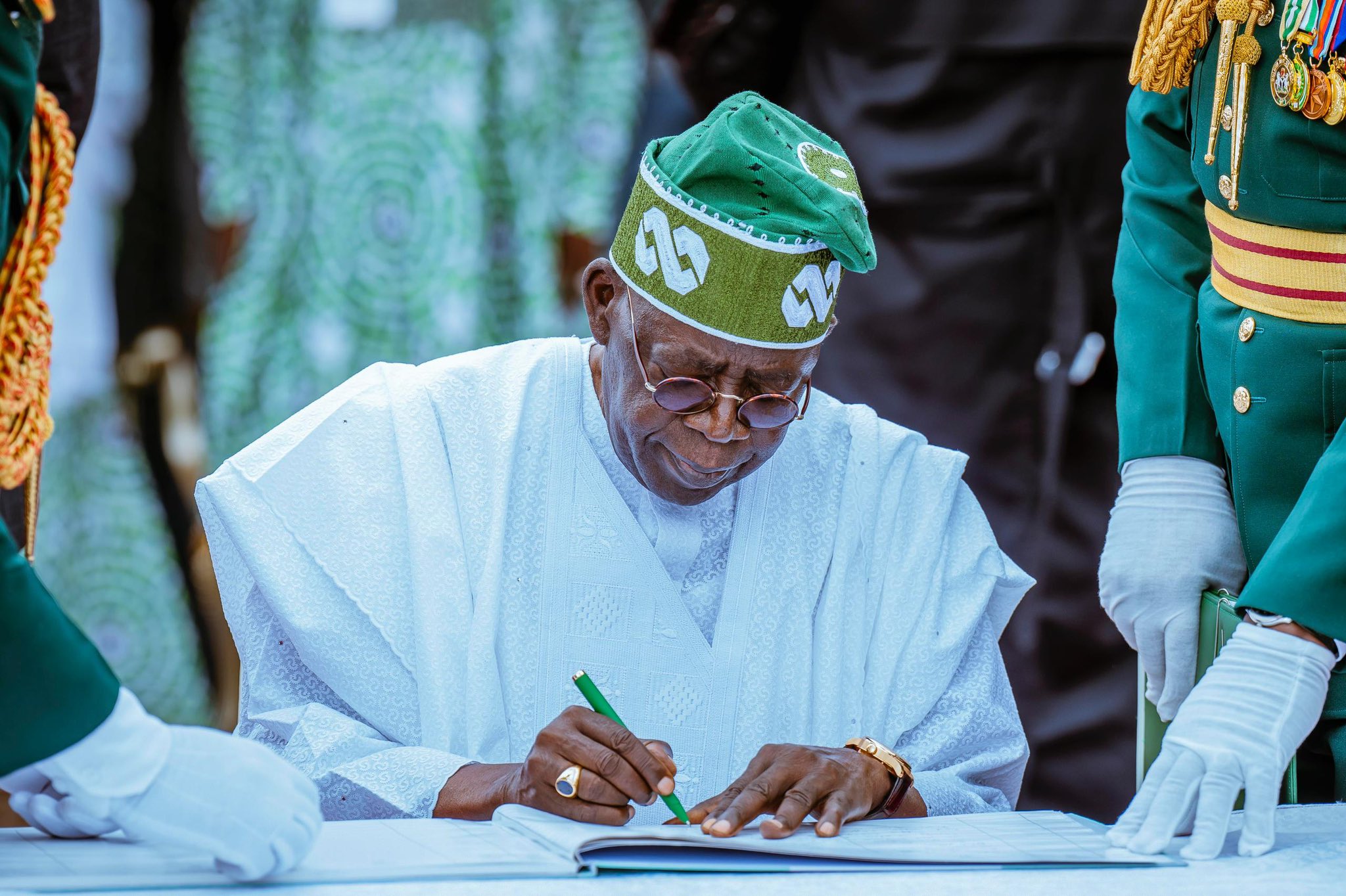
The appointment of Rauf Aregbesola, the former minister of interior, as interim secretary of the African Democratic Congress (ADC) — the platform adopted by the opposition coalition — has reaffirmed what had been widely suspected. His political divorce from President Bola Tinubu is complete.
David Mark, former senate president, was also named interim national chairman, as the opposition coalition seeks to position the ADC as a formidable third force ahead of 2027.
The development signals Aregbesola’s official shift from the All Progressives Congress (APC), the party he helped build under Tinubu’s leadership, to the opposition bloc.
Once a fierce loyalist who referred to Tinubu as his “political mentor”, Aregbesola is now openly working against the structure that propelled his political rise.
The political journey of Tinubu and Aregbesola began as a formidable alliance that shaped the face of “progressive” politics in the south-west, but it has now degenerated into an open rivalry that appears beyond repair.
Aregbesola was one of Tinubu’s closest allies, serving as commissioner for works and infrastructure in Lagos from 1999 to 2007.
When Tinubu completed his tenure as Lagos governor, he was instrumental in Aregbesola securing the governorship ticket in Osun — after a three-year legal battle that culminated in victory in 2010.
Their political bond was seen as one built not just on mutual respect but also on shared ideology and strategy, with Tinubu often referred to as “my leader and mentor” by Aregbesola.
In 2019, Tinubu backed Aregbesola’s appointment as minister of interior under former President Muhammadu Buhari’s administration, further solidifying their alliance at the national level.
In June 2020, TheCable reported that a webbed fissure had begun to run through their cordial relationship, but the political “brothers”, as they called themselves, denied the report in strong terms.
TheCable reported that the rift began in May 2020, when Aregbesola arbitrarily revamped the Mandate Group — a core of Tinubu’s loyalists — and replaced the closely-knit caucus with individuals he trusted.
Their feud became more pronounced in the build-up to the 2022 Osun governorship election.
The former Osun governor relaunched the group without Tinubu’s approval and named Abdullahi Enilolobo, his protégé, as the new leader.
In 2020, Mandate Group and the Justice Forum, the two most powerful groups of the All Progressives Congress (APC) in Lagos, were dissolved by party leaders, further widening the crack in their alliance.
Two years later, there was an attempt by close associates and friends to reconcile both men ahead of the 2023 general election, but it did not yield the desired result. The chinks of a few years ago had worsened into cracks, then widened into crevices that threatened to shatter the relationship into smithereens.
AREGBESOLA: TINUBU TURNED HIMSELF INTO A GOD

Ahead of the 2022 Osun governorship election, Aregbesola turned his back on Gboyega Oyetola, Tinubu’s cousin and his successor as governor.
Aregbesola would go on to endorse Moshood Adeoti instead. He demonstrated the collapse of his “brotherhood” with Tinubu while speaking in Oriade LGA of Osun during the campaign trail for Adeoti, his anointed candidate for the APC governorship ticket.
Aregbesola, then a minister, launched tirades of verbal assaults at Tinubu. He said Tinubu was exalted “beyond his status and had turned himself to a god over us”.
He said Oyetola would be ousted from office for failing to stick to the plan that would make Osun prosperous.
The move split the party and contributed to the APC’s defeat in Osun by Ademola Adeleke of the Peoples Democratic Party (PDP).
Following the loss, Aregbesola was sidelined by the national leadership of the APC and excluded from the party’s major activities. Tinubu did not mention Aregbesola during his campaign in the state, while the latter also kept a noticeable distance from the presidential rally in Lagos.
During the campaign, Aregbesola left the country and only returned after the elections — a decision many saw as a quiet protest.
Since then, the former governor and minister has been largely absent from national politics and party functions.
THE END OF AN ERA IN ALIMOSHO, LAGOS

Alimosho LGA in Lagos, widely regarded as Aregbesola’s political stronghold, was where he exerted influence for years before his rift with Tinubu began.
By February 2022, relations with LGA stakeholders had soured. The APC members in Alimosho held a funeral rally, carrying coffins inscribed with ‘RIP’ and singing dirge songs to mark Aregbesola’s “political end”.
The coffins were burned, symbolising their declaration of the end of Aregbesola’s political reign in the LGA.
About a year later, Aregbesola described Tinubu as the architect of his success, while chronicling his contribution to his ascendancy.
“I hold no grudge against anyone in Osogbo or Osun. My hands are wide open to work with and receive anyone,” the former minister said at the palace of Jimoh Oyetunji Olanipekun Larooye II, the Ataoja of Osogbo.
“I was born in Ikare Akoko. It is surprising that a boy born in Ikare Akoko became a commissioner in Lagos and governor in Osun. That is the work of God. He used Asiwaju to lead me to the path of success.
“I thank God who brought me to Lagos through the assistance of Asiwaju Bola Tinubu. He is the architect of my success. I spent eight years as commissioner in Lagos.
“In 2004, we had a meeting in Badagry where we talked about how we would take over our states from the opposition party.
“Asiwaju Tinubu and other Yoruba elders directed me to come and take over my fatherland — Osun state. That was my next place of assignment.”
THE AFTERMATH OF TINUBU’S VICTORY

After Tinubu’s election as president, Aregbesola remained on the sidelines, maintaining a distance from the new administration.
In July 2023, Aregbesola launched a factional group within the APC in Osun — the “Omoluabi Progressives” — and the initiative was naturally viewed by analysts as a veiled attempt to challenge Tinubu’s influence.
He insisted that the movement was not a breakaway faction, but one aimed at restoring true progressive ideals. But political analysts viewed the group as a precursor to his eventual exit from the APC.
That prophecy now seems fulfilled with his appointment into the ADC’s interim leadership, a move that aligns him with a swelling opposition movement.
For many political observers, his new alliance is not unexpected.
In 2024, the Osun APC said it had suspended Aregbesola over his “outburst against Tinubu”. The former Osun governor was eventually expelled from the party in 2025.
The party accused the former minister of interior of “creating splinter groups in the APC” and making “public outbursts” against Tinubu, Bisi Akande, a former governor of Osun, and Oyetola.
As interim national secretary of the ADC, Aregbesola is now at the forefront of the charge to attempt to unseat Tinubu in the 2027 elections — with former Vice-President Atiku Abubakar and ex-governor Nasir el-Rufai among the ranks of key stakeholders in the coalition.
What began as a brotherhood anchored on shared ideology has now become one of Nigeria’s most visible political fallout in recent years.
While Tinubu sits at the pinnacle of national power, Aregbesola is forging a new path, this time from the other side of the aisle.
(The Cable)

